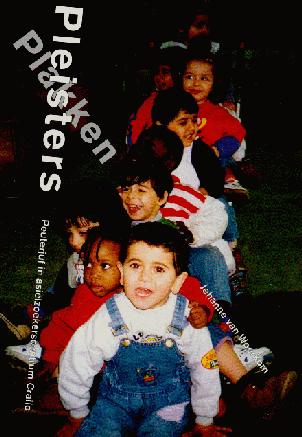 Next to the AZC (asylum seeker center) there is the practice place for shooting, as an old result of the military camp it is used to be. The place is used 6 times a week by police, militaries and shooting clubs. Sometimes there is a shooting tournament.
Next to the AZC (asylum seeker center) there is the practice place for shooting, as an old result of the military camp it is used to be. The place is used 6 times a week by police, militaries and shooting clubs. Sometimes there is a shooting tournament. Requests to stop the shooting, at least as long as war refugees live in the same complex, were ignored by the responsible ministries.
Child from Kosovo:
Every time I hear POW POW POW I hide myself but my mother tell me they will not come.
Woman form Iran:
My child is afraid in Crailo. When he hears the shooting he thinks that the soldiers will come and grab him and his father, just like than.
Girl from Sarajevo:
We all became crazy in Sarajevo. Now I live in Crailo. I walked with a friends and a small path. They started to shoot. We had no idea where to hid
Man & Woman from Bosnia:
Our village is bombed for 5 month, We hear the sounds from Bosnia, every day. When they shoot hard we are shaking in our room in Crailo.
A child from Somalia:
When there is heavy shooting she cries all day. Her father said to the doctor it was because of the shooting. the doctor gave medicines to sleep.
